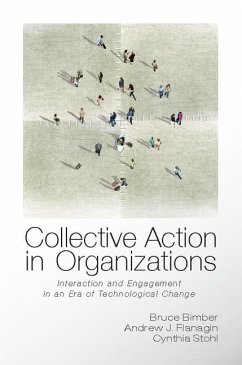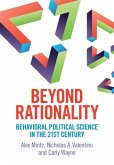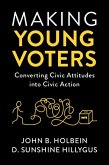Challenging the notion that digital media render traditional, formal organizations irrelevant, this book offers a new theory of collective action and organizing. Based on extensive surveys and interviews with members of three influential and distinctive organizations in the United States - The American Legion, AARP and MoveOn - the authors reconceptualize collective action as a phenomenon in which technology enhances people's ability to cross boundaries in order to interact with one another and engage with organizations. By developing a theory of Collective Action Space, Bimber, Flanagin and Stohl explore how people's attitudes, behaviors, motivations, goals and digital media use are related to their organizational involvement. They find that using technology does not necessarily make people more likely to act collectively, but contributes to a diversity of 'participatory styles', which hinge on people's interaction with one another and the extent to which they shape organizational agendas. In the digital media age, organizations do not simply recruit people into roles, they provide contexts in which people are able to construct their own collective experiences.
Dieser Download kann aus rechtlichen Gründen nur mit Rechnungsadresse in A, B, BG, CY, CZ, D, DK, EW, E, FIN, F, GR, HR, H, IRL, I, LT, L, LR, M, NL, PL, P, R, S, SLO, SK ausgeliefert werden.









